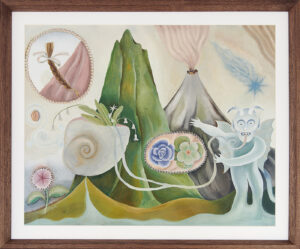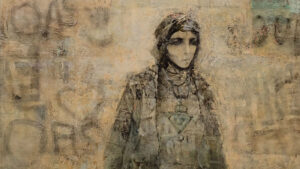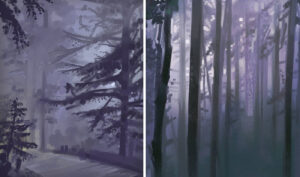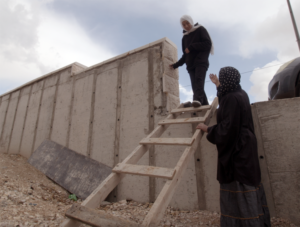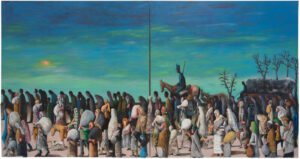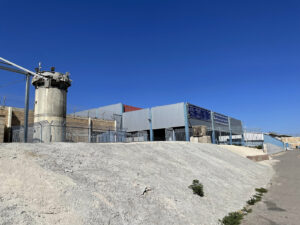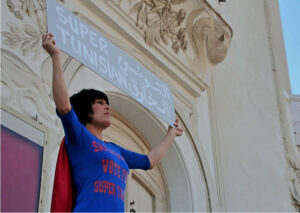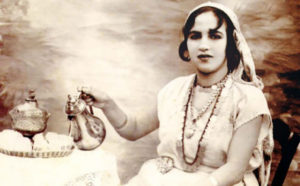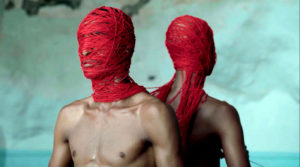Select Other Languages French.
Ghassan Salhab documented Lebanon’s 2019-20 protest movement while participating in it. With Contretemps, he presents an immersive study of the raucous collective agency of youth, the silent isolation of mortality, and resistance. Contretemps had its world premiere in Marseille in April at FID Marseilles. It has yet to have a formal projection in Lebanon, but rumor has it there will be screenings soon at Concordia University in Montreal.
[Beirut] How does it feel to participate in a mass civil uprising? What is the sound of popular protest depleted by pandemic and penury? When personal loss compounds the hollowing out of the public sphere, how does the world look? These are among the questions Ghassan Salhab addresses in his 2024 film Contretemps (النهار هو الليل, Day is Night).
A small library of Lebanese films surfaced in the wake of the photogenic protest movement that ignited in late 2019 and the cascade of outrages that followed. Though he released a pair of feature-length films in this period (the 2019 nonfiction Warda and the fiction The River, in 2021), Salhab had refrained from contributing a major work to this current. The filmmaker was active in the 2019 protests and underwent the stultifying objectification of the financial collapse, Covid-19 pandemic, port blast, economic and political stagnation and, most recently, war. Salhab’s video documentation of this journey (his “logbook”) are Contretemps’ rushes.
His film is unlike other post-2019 nonfiction titles — Mai Masri’s 2021 Beirut in the Eye of the Storm, say, or Myriam El Hajj’s 2024 Diaries from Lebanon — in which the filmmakers cast clusters of protagonists to illustrate the impact of the country’s crises, and relate their stories within two hours. Contretemps renders the bipolarities of the 2019-2023 period as slow cinema. Over nearly six hours the film is awash with humanity but without a discernible protagonist other than the citizenry, waxing and waning in the frame with the country’s changing political and climactic seasons. The filmmaker appears for only a few seconds in the final half hour of the work, though his sensibility is evident throughout — in the film’s themes, its lyricism and his struggle to maintain aesthetic equilibrium when loss at home magnifies that of the flagging popular struggle.
While the first half of Contretemps focuses on the public sphere (demonstrations, quotidian moments, urban and rural tableaux) the film later oscillates between (sometimes emptied) sites of activism and snatches of Salhab’s private life. The camera may glance at the pages of the filmmaker’s journals and he can be heard briefly, notably in a poem (translated into Arabic and read in voiceover by filmmaker Bassem Fayad) based on his phone call with a colleague in Bethlehem. The most intimate moments involve his mother and father.
The payoff for audiences will vary with the viewer’s temperament. Those used to communication by soundbite may need some time to acclimatize to the film’s pacing. Engaged and patient filmgoers — those excited by Bela Tarr’s Satantango, for instance — may find Contretemps an absorbing and immersive experience.
A Lebanese arthouse filmmaker
Salhab’s contemporaries, friends and colleagues include filmmakers and contemporary artists that critics and journalists have corralled as “Lebanon’s ’90s generation.” Influenced by European arthouse aesthetics and rooted in the Lebanese narrative, Salhab’s work is not mainstream cinema. Respected for the rigor of his language, his work is more likely to be appreciated by critics than multiplex audiences, who may find its demands exasperating.
When discussing his past work, Salhab has tended to privilege his fictions, consisting of eight feature-length films. His 1998 debut, Phantom Beirut, is a genre hybrid. A fiction film about a former fighter’s return to Beirut during a lull in the country’s civil war is interspersed with doc-style interviews with artists who grew up during the conflict. He is also known for his trilogy of films that take their titles from the country’s landscape features — The Mountain, 2010, The Valley, 2014, and The River. In The Last Man, 2006, the protagonist finds himself transforming into something that is anathema to him. Salhab’s first and only turn at the vampire genre, The Last Man is notable both for taking up a theme that has resonated through the country’s post-civil war contemporary art and for being among his most accessible feature to date.
The filmmaker’s other works are more essayistic. Ranging from shorts to feature-length nonfictions, they tend toward the experimental. Some are self-produced no-budget efforts, like the 2005 solo project Brève rencontre avec Jean Luc Godard (ou le cinéma comme métaphore), while others are crewed productions like 1958, 2009, and Warda. Contretemps follows from Salhab’s essays inasmuch as it is basically a solo project — the footage shot, sound recorded and edited by himself. The film credits list six colleagues whom Salhab says assisted in the production.
An impressionistic calendar
Contretemps’ want of characters and documentary-style signposting, voiceover narration for instance, can give the film an impressionistic air, but it is not structurally complex. It is a timepiece beginning in 2019, when the filmmaker returns home early from overseas after learning that people were on the street demanding root-and-branch change. It ends in 2023, with the sound of air strikes resonating from the country’s southern border. Intertitles note shifts in temporal location (October 12, 2019, August 8, 2020) or provide thematic commentary (“in the beginning,” or “the final chant?”).
Landscape motifs provide counterpoint to the years-long stream of events and minor key incidents. The camera periodically falls upon upland rural locations, where the stillness is pierced by the metallic clangor and bleating of sheep grazing on hillsides. More prominent are three or four Rear Window-style panoramas of Ras Beirut. The most persistent was shot from a north-facing window or balcony, showing a portrait-shaped sliver of Mediterranean sea and sky sandwiched between a pair of tower blocks. Cargo ships move back and forth through the frame. As the film circles back to these vistas, they provide lyrical studies of light — as refracted through the city’s capricious weather and air quality — darkness — significant as nighttime was much darker early in the financial collapse, when electricity was rare, and because of the filmmaker’s nocturnal wakefulness — and sound — unobstructed silence; a call to prayer, conspicuously free of competition; roaring sirens; a solitary voice crying “Oh god! Oh lord!”
Sound is a key part of Salhab’s language. It opens with a shot of Lebanese kids, domestic help and parents on a rocky beach. The scene is silent. When the soundtrack arises, it is disconnected from the footage, apparently documenting an interior dining sequence, animated by the voices of children and adults. After the title fades in and out, the scene cuts to an interior shot of a moving car, lens angled up to capture the canopy of roadside trees, with superimposition lending it an aspect of collage. As voices scratch the air from the radio, the opening lines of the revolutionary anthem “The Internationale” rise from a male voice, first humming then lightly singing — Arise ye prisoners of starvation/ Arise ye wretched of the earth … — the first of many songs and chants to resonate through the film.
Only then does the scene cut to Beirut’s Martyrs’ Square, in the midst of being transformed into an improvised campground after the 2019 demonstrations began on Oct 17. Sirens accompany the swirl of civilians, helmeted police with riot shields and batons, journalists and soldiers moving through the area. “Coming from the airport, the roads were empty,” read the subtitles. “It is because of the latest events, said the taxi driver. I had heard this word, events, for the first time in April of 1975” — the start of Lebanon’s civil war.
Much of the first half of Contretemps is devoted to protest demonstrations and marches at various locations in Beirut, as well as Trablous and the South. Different sequences are sometimes superimposed, perhaps suggesting the onlooker’s fatigue. One march is filmed, full face, as it approaches Downtown from Ras Beirut. The protestors are then shown in profile as they move past, then from behind as they chant their way into the tunnel of a motorway. Throughout, demonstrators sing protest songs against the political class and its enablers — extemporized on-site by whoever’s holding the megaphone, sometimes performed by professional musicians or rapped after nightfall by local hip-hop artists. The first improvised protest song the film shows, apparently prompted by then-Prime Minister Saad al-Hariri’s resignation, is set to the tune of a children’s song. The street chants Salhab captures do not necessarily evoke the music-box cadences of nursery school, but all resonate with an energy and optimism that are characteristically youthful, regardless how old the demonstrators.
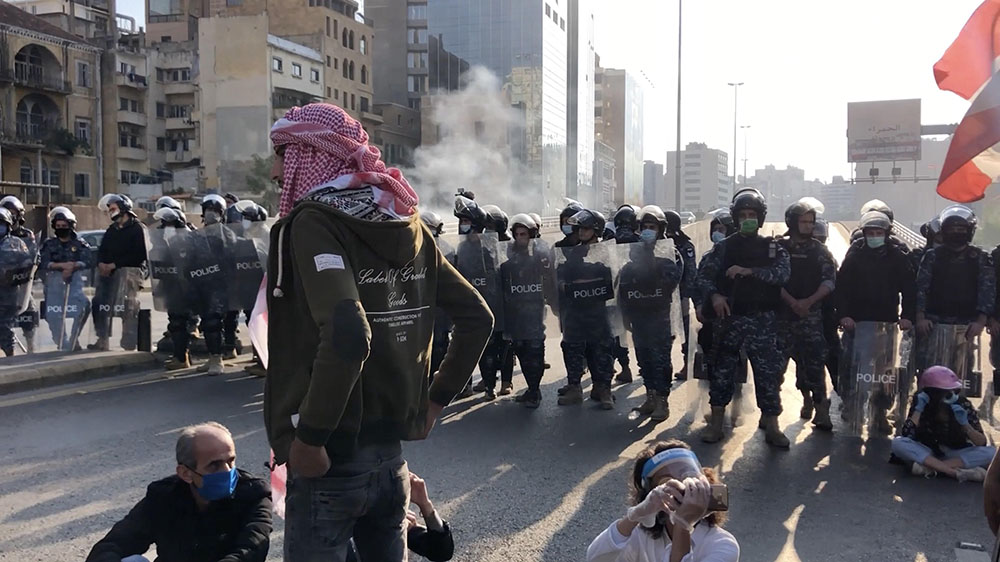
“Come on Beirut,” exultant voices shout early in the film. “Rise up!”
Arise, ye wretched of the earth.
Locations and tone shift with the movement’s fortunes. A little over an hour in, the time of marching and singing is overtaken by a phase of fleeing and stone-throwing, as security forces turn to teargas and water cannon. The streets again briefly resonate with chants before being subsumed by the silence of pandemic lockdown. Where people might pound on pots and pans from balconies in support of the protestors, they later performed to breach the enforced stillness. Individuals are seen — dribbling a football on the roof of an adjacent building, feeding street cats from behind a Covid face shield. Sometime between March and May 2020, Salhab’s camera captures a tableau of clouds moving over the face of the moon, accompanied by a shaykh’s sermon resonating from a mosque’s PA system and the persistent whine of an Israeli surveillance drone. As silence and stillness displace chanting and song as nighttime’s principal accompaniment, the drones become a more frequent acoustic presence.
Contretemps is an unusually daring film, not because it shows previously undisclosed scenes of Lebanon’s crises but because of its rigorous cinematic language. It documents the fragility of the creative act itself.
Endings
During two periods of relative quiet, the filmmaker is staggered by trauma unconnected to the protests and the crises that metastasized alongside them. A little over three hours into the film, a nocturnal sonata of kitchenware and ululation cuts to a silent interior shot of a piece of black-and-white wall art with African motifs. A man’s voice can be heard asking something of Ghassan and the image drops to black before cutting to an elderly gent in spectacles framed by a doorway. As the scene drops back to black, the younger man replies from off-frame, pauses, then asks, “Where’s mom?” With this, Contretemps pivots to peer into Salhab’s private life. The film’s second half is suffused with loss — with the exhausted protest movement providing somber accompaniment to his parents’ deaths.
Salhab’s mother holds a significant place in his nonfiction work 1958, and Contretemps reprises a photo from that earlier film, showing the young mother and her first-born as a little boy. Salhab’s reflections upon her passing are strikingly anecdotal, related via subtitles upon a black screen accompanied by the nocturnal sounds of the city. They touch upon her influence upon his work (particularly The Last Man), how he’d shown her footage of the Beirut demonstrations during her final days, how a neurodegenerative disease had left her unrecognizable, and the alienating rituals that accompanied her burial.
After documenting his mother’s departure, Salhab’s treatment of the Beirut port blast, and its aftermath, is measured. The massive plume of pink smoke that rose over the city before the explosion is shown, as the voices of Salhab and another man are overheard speculating about its cause. The blast itself is neither shown nor heard. Neither is the fierce melee of tear gas and rubber bullets, smashed concrete and fireworks that followed. The scene cuts to a montage of blast wreckage, bewilderment, and a few spaces that had hosted protests and the tents of the movement’s organizers, contained, emptied, silenced.
Salhab uses intertitles to signal his father’s passing too — “Why did he leave before me? he asked” — and these reflections too are anecdotal, but his representation of Abu Ghassan’s absence is more cinematic. Flanked by wild seaside foliage, the filmmaker walks the camera down a path leading to one of few undeveloped (not privatized) strips of the Beirut coast. His father was among the men who frequented this area — as amusingly documented by Lebanese artist Mounira Al Solh in her 2007 series Sea Is a Stereo. “Everyone knows Abu Ghassan here,” the intertitles observe, “the fishermen, the swimmers, the divers, the loafers, all the regulars. So I’m a bit of a curiosity. His son.”
The camera finds a couple of small boats, overturned amid the weeds.
“Why only now?”
The film cuts to an interior shot showing Abu Ghassan’s glasses on a tabletop, with the sea visible in the background. A few minutes later, the film reprises some footage of a line of Arabic graffiti on a Beirut wall — “We now belong to the loss.”
The camera seems to seek a note of optimism with which to close, but sorrow imbues the landscape. In August 2021, the frame opens upon the world premiere of Salhab’s The River at the Locarno film festival, “2634.1kms from here,” as the intertitle notes, followed by the joyless remark, “Cinema is back, they claim.”
Sometime later, a jolly oud tune rises from the black screen, which cuts to a couple of fellows on a sidewalk singing an upbeat song on estrangement. “If you have loved me and forgot about me, Left me on my own, Just send me a letter, Tell me you are well.”
The vignette is juxtaposed with an image of the remains of a songbird in the dirt.
About 15 minutes before the closing credits, the unsmiling Salhab appears in the frame. The ensuing intertitle, “Yes I know you’re unhappy,” precedes a rear-window tableau showing the roof of a residential building where someone’s dropped a small excavator. Its clawed shovel has been replaced by a jackhammer, with which the operator is assaulting a rooftop structure. Upon the doomed wall, someone had spray-painted a heart and the phrase ‘بحبك’ (I love you).
Perhaps Salhab found some absurd comedy in this scene. In the tracking shot that follows, filming the seaside from a moving vehicle, a bloated sun hangs low in the sky, shining with an unnatural intensity, exploding through any roadside obstacle passing between it and the lens. The sequence is accompanied by an unremittingly sparkling Tindersticks tune. Its lyrics acknowledge the shitty state of things — “Yes I know you’re unhappy. Yes I know you’ve been cryin’. I been crying too” — while insisting that there is only one way forward: “You have to scream louder.”
The film closes on November 12, 2023, with a black screen, the sound of shelling and surveillance drones.
Like the period it captures, Contretemps is a mutable piece of work. Its documentation of the demonstrations of 2019-20 unfolds as a study of the culture of youthful engagement with politics in the public sphere, one that wields an accomplished cinematic language of movement and stasis, sound and silence. This language also proves adept in capturing the inversion of political agency — the pandemic’s becalmed enclosure and the enforced silence of a public sphere depleted by exhaustion (and perhaps fragmentation, whether by financial ruin, emigration, or varying positions of hostility to and dependence on the status quo).
Contretemps is an unusually daring film, not because it shows previously undisclosed scenes of Lebanon’s crises but because of its rigorous cinematic language. As it reorients itself, from scrutinizing youthful collective action to documenting mortality and the isolation of grief, it puts severe strains on this aesthetic. It documents the fragility of the creative act itself.



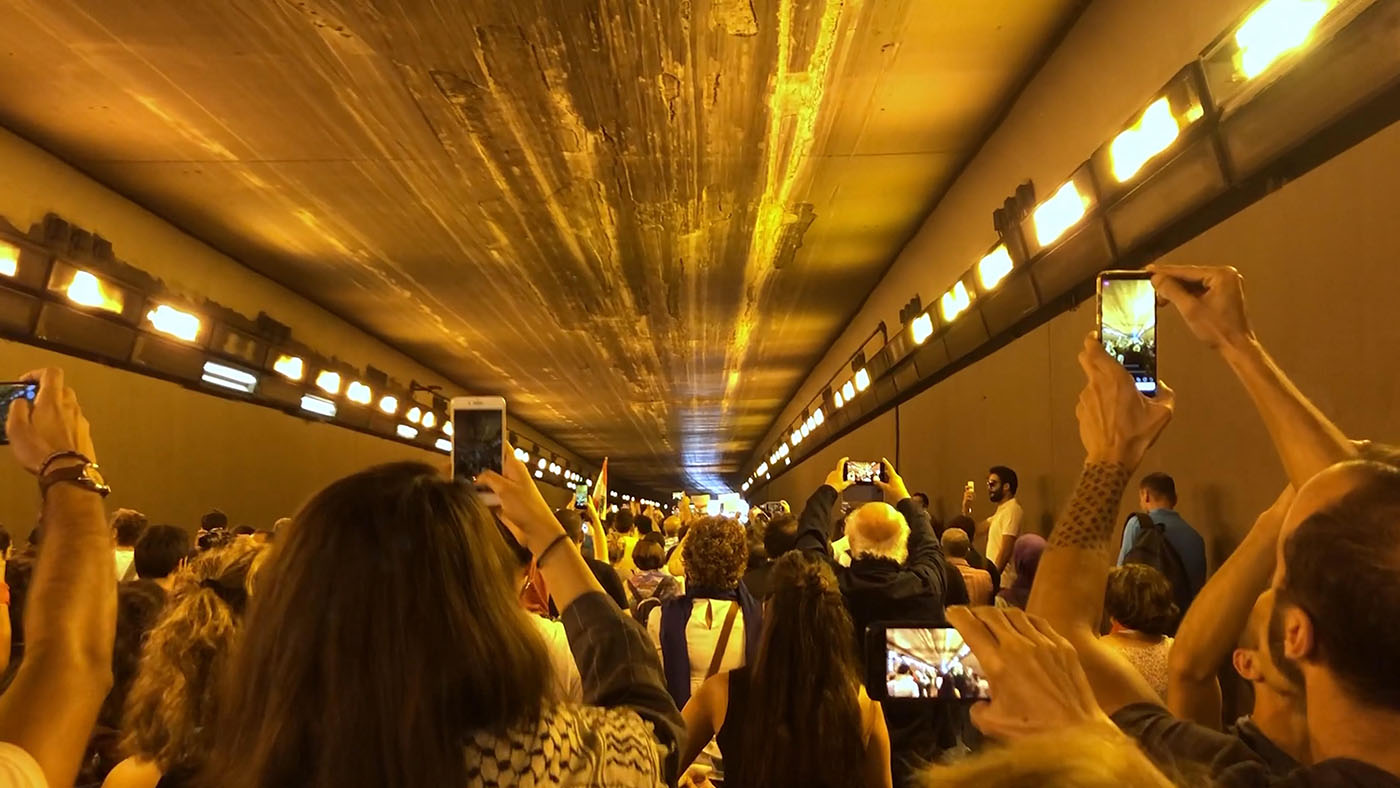



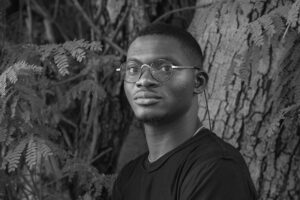

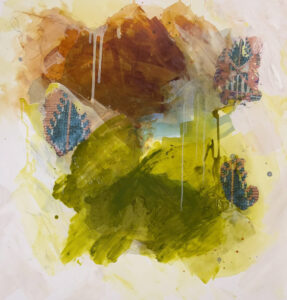
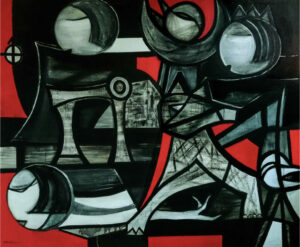



![Ali Cherri’s show at Marseille’s [mac] Is Watching You](https://themarkaz.org/wp-content/uploads/2025/09/Ali-Cherri-22Les-Veilleurs22-at-the-mac-Musee-dart-contemporain-de-Marseille-photo-Gregoire-Edouard-Ville-de-Marseille-300x200.jpg)






